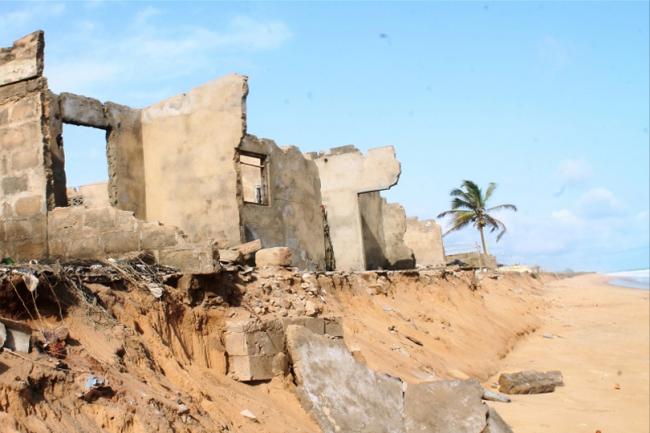
World Bank unveils $16 billion business plan to boost climate resilience in Africa
“The consequences of climate change for Africa are devastating and threaten to push millions of people into extreme poverty by 2030, largely due to lower crop yields and higher food prices, and negative health impacts,” said Benoit Bosquet, World Bank Practice Manager in the Environment & Natural Resources Global Practice in a news release. The plan is being released ahead of the UN climate change conference in Paris, widely known as COP21.
According to World Bank, the new blueprint, Accelerating Climate-Resilient and Low-Carbon Development: The Africa Climate Business Plan aims to both bring attention to and accelerate resource mobilization for priority climate-resilient and low-carbon initiatives in the region.
“In light of the huge financing gap and the need for urgent action, the World Bank prepared the Africa Climate Business Plan as an important step in mobilizing climate finance to fast-track Africa’s climate adaptation needs in the context of development priorities,” added Bosquet.
According to the plan, the primary climatic factors that challenge African countries in tackling extreme poverty are due to unavoidable levels of warming owing to past emissions of greenhouse gases, further warming that will have disastrous consequences, such as heat extremes and considerable uncertainty on what the warming impact will be on local weather patterns and hydrological cycles.
The World Bank said that the plan focuses on increasing adaptation through strengthening resilience by boosting the continent’s natural, physical, human and social capital, powering resilience, including increasing low-carbon energy sources in vulnerable societies, and lastly, by enabling resilience by providing essential data, information and decision-making tools for promoting climate-resilient development across sectors.
At present, the funding for adaptation are about $3 billion per year, which is insufficient to finance current needs, and is not increasing at the necessary rate to meet future needs, said World Bank.
The plan estimates that the near- to medium-term implementation will cost about1$6.1 billion to be raised by 2020, of which $5.7 billion is expected to come from the International Development Association (IDA) and the rest from other sources, including bilateral and multilateral sources, dedicated climate finance sources, and private sector.
Lastly, the plan notes that further results could be achieved by 2025, at a cost of about $21 billion.
Photo: Daniel Addeh/IRIN/www.justearthnews.com
Support Our Journalism
We cannot do without you.. your contribution supports unbiased journalism
IBNS is not driven by any ism- not wokeism, not racism, not skewed secularism, not hyper right-wing or left liberal ideals, nor by any hardline religious beliefs or hyper nationalism. We want to serve you good old objective news, as they are. We do not judge or preach. We let people decide for themselves. We only try to present factual and well-sourced news.







